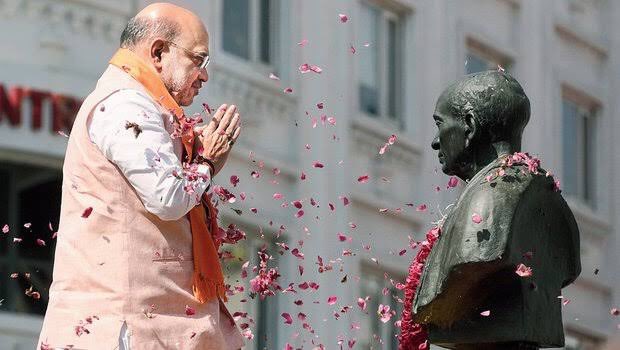Keeping in mind the geopolitical position that Kashmir has in south Asia, the revocation of Article 370 is a tectonic shift undertaken by the Narendra Modi government. If you ask a BJP leader, he will tell you it is correction of a historical blunder.
Article 370 is history. So is Article 35A. And Jammu and Kashmir is no longer a state, it is a Union territory. It has also been bifurcated with Ladakh also made a Union Territory.
Parliament witnessed an uproar with PDP MP Mir Mohammad Fayaz tearing up a copy of the Constitution of India kept in the Rajya Sabha. But to control the ruckus in the House is the easy part of the job. The soldier on the ground in the Valley will tell you the real challenge will come in Jammu and Kashmir.
Security experts are cautious. They tell me on condition they will not be quoted that Kashmiris will be up in arms. To counter that, curfew has been imposed and restrictions imposed on any kind of mobilisation of civil society. Even states in other parts of India have been put on alert to avoid any kind of communal flashpoint.
But wouldn’t any kind of rebellion by youth or civil society in general, need support either from political groups or from across the border, I ask. The Centre has ensured the wings of political leadership have been clipped by putting many of the big names under house arrest.
“You just need a trigger. We can control it by ensuring effective curfew and continuing with it even for 3-4 months but then there are no easy answers in a dynamic situation. Don’t forget, even Tiananmen Square happened in China,” a senior security expert who has years of experience of working in the Kashmir Valley told Filter Kaapi.
Both former chief minister Mehbooba Mufti and Leader of Opposition in Rajya Sabha Ghulam Nabi Azad have spoken of Article 370 as a bridge between India and Jammu & Kashmir. Questioning 370, they believe, is questioning the accession of J&K with India.

But Union Home minister Amit Shah says the attempt to define Article 370 as an umbilical chord is flawed.
“It is not true. Maharaja Hari Singh signed the J&K Instrument of Accession on 27 October 1947 while Article 370 came into effect in 1954,” he said in the Rajya Sabha.
Shah’s response also has been to rubbish Article 370 saying it only provided three families in the state an opportunity to loot it for 70 years. It flows from what one of the Jana Sangh founder Dr Shyama Prasad Mukherjee used to say – that a single country cannot have two constitutions, two Prime ministers (the CM of J&K till 1965, was called PM) and two national emblems.
While the political boxing will take place, the worry will be if the optics of Delhi deciding Srinagar’s fate will lead to radicalisation and further alienation among Kashmiris, especially the youth. Anchors of nationalistic television news channels have in the past, shown a tendency to demonise any Kashmiri who picks up a stone, shouts a slogan or defies the curfew. If they do so now, they will only be doing more damage in a delicate situation. This is the time to reach out, not to alienate.
But it is not as if no one in Jammu and Kashmir will be celebrating. Ladakh will be overjoyed as to become a unit separate from J&K was a long standing demand.
Categories: National
